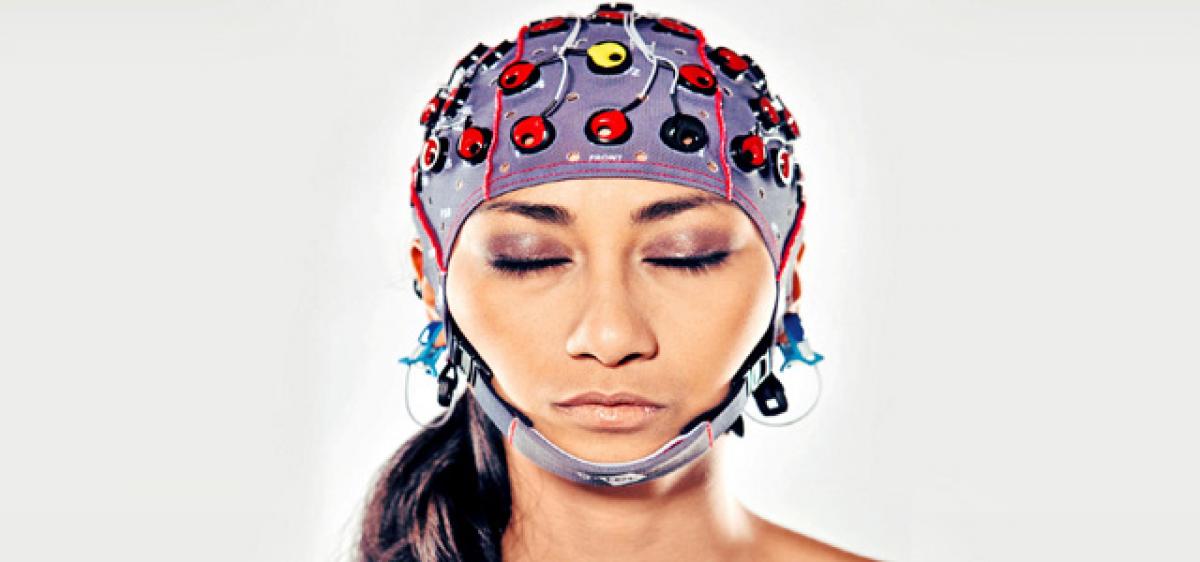Live
- Constitution, a powerful protector of vulnerable sections: Rahul Gandhi
- 34 lakh vehicles, more than 15 years old, ply in Bengaluru
- BJP-JDS party workers believe Congress is the future: DKS
- Aishwarya Rai's Powerful Message Against Street Harassment: "My Body, My Worth"
- Pawan Kalyan to meet union minister in Delhi today to discuss AP issues
- Couple arrested for forcing Bangla girl into prostitution
- Grant allocation war erupts again in Congress
- PM to attend DGPs’ meet from Nov 29
- Tigress ‘Zeenat’ released into wild in Similipal
- Odisha police launch drive to eliminate ganja cultivation
Just In

A low-cost, brain-scanning device for detecting neurological emergencies swiftly, a biochip integrated with smart phone for DNA-based test malaria test, a point-of-care microscope that detects infection using artificial intelligence (AI) are some of the top 20 ventures selected in the Tata Social Enterprise Challenge (TSEC) 2016-2017.
Kolkata: A low-cost, brain-scanning device for detecting neurological emergencies swiftly, a biochip integrated with smart phone for DNA-based test malaria test, a point-of-care microscope that detects infection using artificial intelligence (AI) are some of the top 20 ventures selected in the Tata Social Enterprise Challenge (TSEC) 2016-2017.
Of the over 400 applications for the latest edition of TSEC, the maximum (20 per cent) are from the healthcare sector. This is followed by (at 18 per cent) participants from the agriculture, food, dairy segment and the education vertical.
For example, Kolkata-based Arogya Meditech Pvt. Ltd, has developed a product called CEREBROS, a low-cost, portable, radiation-free brain scanning device that detects brain injuries, strokes and other neurological emergencies. It comes in the form of a wearable head-gear and combines two technologies-Near Infrared Spectroscopy and Electroencephalography.
Bengaluru-incubated biotech company OmiX Labs has designed a platform that includes a disposable biochip loaded with all reagents and a smartphone based reader for DNA analysis. Aiming to bring tests to the patients themselves, its current projects include detection of low levels of malarial parasite in blood, urinary tract infections and anti-microbial resistance.
Satya Tapas of Scidogma Research, Bengaluru, has designed an automated, POC, AI-enabled microscope that can diagnose malaria in remote areas.
TSEC is a joint initiative by the TATA group and the Indian Institute of Management Calcutta (IIM Calcutta), a national level challenge to find India's most promising social enterprises.
According to C.D. Mitra, advisor to the Centre for Entrepreneurship and Innovation at IIM Calcutta, in about five years there has been a 100 per cent increase in the number of participants in the challenge.
"The maximum number of applications for the 2017 edition is from the southern part of India (35 per cent). At the IIM Calcutta Innovation Park, between 30 to 40 per cent applications are from social enterprises," Mitra said.
However, Ashok Banerjee of the institute said, if these social enterprises have to scale up and be among the big players they have to go for mainstream funding.

© 2024 Hyderabad Media House Limited/The Hans India. All rights reserved. Powered by hocalwire.com







